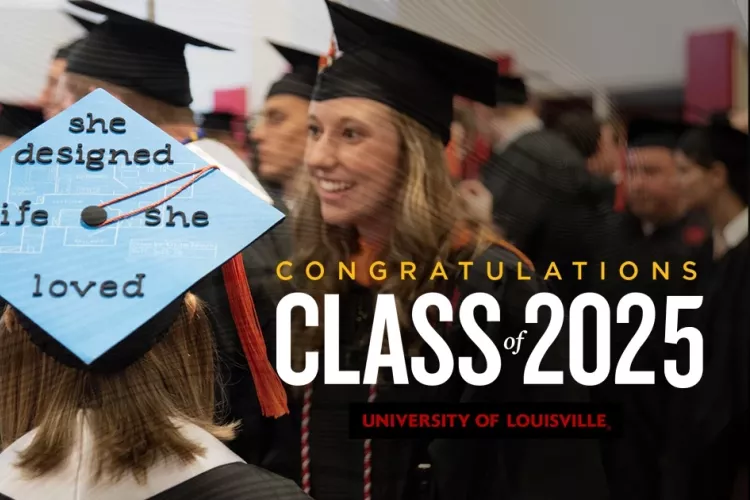How one longtime UofL professor adapted to teaching during a pandemic
October 2, 2024The year 2020 imposed numerous, unique challenges to the faculty and staff at the University of Louisville. When faced with these challenges, Irving Joshua, professor and chairman of the department of physiology, rose to the occasion. Joshua and his colleagues worked diligently as a department to support and encourage their students, as well as each other, as they all adapted to the virtual classroom.
There was a learning curve involved given his tenure. Joshua joined the department of physiology in 1981 as an associate professor and will be celebrating his 40th year as a UofL faculty member this summer. He has held his position as the chairman of the department of physiology for the past 26 years - the longest chairmanship in the department’s history.
When asked about the biggest obstacle he and his department have faced, Joshua stated, “we had to make a decision pretty early on what (the department of physiology) would do – we felt that going virtually was not only best for the faculty, but it’s also going to be best for our program.”
Throughout the last year, Joshua familiarized himself with various videoconferencing platforms such as Zoom and Microsoft Teams. Breakout rooms have been especially useful as Joshua employs team-based learning with his students. He credits the younger members of the department’s teaching faculty for lending their expertise during the transition to online learning.
“Key people in our teaching faculty are in their 30s or so, and we’re all working together to find new and innovative ways to present the course material. Of course, we had a few faculty members that were a bit cautious of the change (to online learning), but we were able to overcome that because we had individuals that felt comfortable making that transition and helping others,” he said.
In addition to implementing the features of videoconferencing, Joshua has also taken advantage of remote meetings by doubling the number of mock interviews he offers to students. Before the pandemic, Joshua met with one or two students monthly to help them prepare for professional school interviews. He is now able to meet with at least twice as many students, especially with recent graduates that are outside of the Louisville area.
Joshua further commended the transition of the university’s Summer Health Professions Education Program (SHPEP) into an online program. The free six-week program is designed for prospective medical, dental, nursing and pharmacy students from disadvantaged backgrounds, and aims to prepare future scholars from underrepresented populations within the health professions for success within health professions schools. Despite the challenges put in place by COVID-19, nearly 80 students were able to participate remotely in the program in the summer of 2020. Joshua, who contributes to the program through the two-credit course offered by the department of physiology, was thankful that the unique opportunity could still be offered to students from those underrepresented populations.
Joshua’s colleagues are quick to praise his leadership and commitment to adapting his teaching and the department during a pandemic. Jeff Falcone, a professor in the physiology department, stated, “Dr. Joshua is a leader with vision, motivation, intelligence and wisdom. He is a leader who leads by example as well as by inclusiveness both intellectually and emotionally. In fact, our 84-year-old faculty member purchased his own Zoom account so that he could learn, grow and interact for the betterment of student learning and understanding. All this is the product of the open vision and encouraging mission set out by Dr. Joshua. That encouragement and that emphasis in both leadership and participation himself, is what helps make Dr. Joshua an effective and positive role model for all he encounters.”
When asked if he had any words of encouragement for other university faculty members as the university continues navigating the pandemic, Joshua stated, “This is just an example of life and adversity. By adjusting through adversities, what happens is you become a stronger and more versatile person, educator and department. That’s what we have all gained because of the pandemic.”



